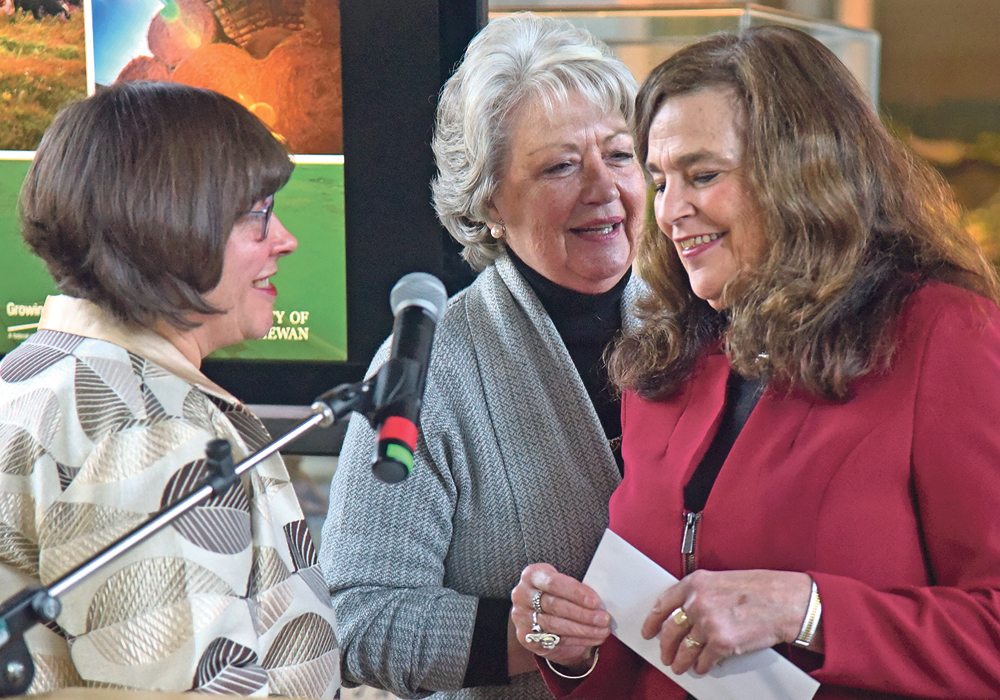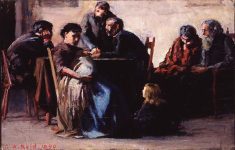On Dec.1 the University of Saskatchewan’s College of Agriculture and Bioresources announced a $5 million donation from A&W to go toward the Livestock and Forage Centre of Excellence.
A&W has demonstrated through its fear-based marketing campaign that it is no friend to agriculture or science.
You know the one. The guy in the orange bread truck stops and asks people what they think of their burger and then preys on their lack of knowledge to make them believe A&W burgers are somehow better or safer than the rest.
Read Also

Proactive approach best bet with looming catastrophes
The Pan-Canadian Action Plan on African swine fever has been developed to avoid the worst case scenario — a total loss ofmarket access.
Let’s ignore the laughable notion that any burger is good for us and focus on the two elements that argue against the college accepting this money: science and sustain-ability.
In June 2014 at the Saskatchewan Stock Growers Association convention in Moose Jaw, Sask., Trish Sahlstrom, A&W’s vice-president of purchasing and distribution, summed it up when she said: “It’s not our job to educate consumers.”
A&W understands that an uneducated consumer is the best kind of consumer.
It’s easy to accept how a cynical fast-food company could think that way, but it is hard to understand why the College of Agriculture and Bioresources would lend its considerable credibility to A&W’s marketing campaign.
If the college looked to sell out its principles, I would have hoped for a higher selling price.
For A&W, the donation is about marketing. Even worse, it’s about marketing foreign beef.
A&W has repeatedly refused to provide data on how much of the beef sold in Canadian restaurants is sourced in Canada.
It’s likely well over 90 percent imported from Australia and the United States and it’s A&W’s right to keep the number secret. It is a private company.
What isn’t right is that A&W continues to insinuate that there is something superior about its imported beef compared to locally grown beef because it doesn’t buy beef that has been raised with artificial growth hormones.
There is no science to support that claim.
Farming in the 21st century is a huge success thanks to adoption of modern technology, which often results from the efforts of research universities.
In our lifetimes, we have seen dramatic increases in farm efficiency on any measure.
A&W’s anti-hormone message would turn the clock back to the 1950s.
According to Alberta Beef Producers, for farmers and ranchers to produce the same tonnage of beef they do today without hormones would require:
- 12 percent more cattle
- 10 percent more land
- 11 percent more feed
- four percent more water
- seven percent more fuel
As well, it would generate 10 percent more greenhouse gasses.
On top of that, Alberta Beef Producers estimates cattle prices would need to be eight percent higher than they are today to match today’s output.
Canadian beef is safe, thanks in part to ongoing research done at universities like the U of S.
The Canadian beef industry is part of a larger agricultural success story. That story is about efficiency and sustainability.
Mary Buhr, dean of the College of Agriculture and Bioresources, knows this but accepted A&W’s blood money anyway.
That’s why I sent her the following terse message immediately after learning about A&W’s “donation”: “I’m so disgusted tonight, Mary, I don’t even know where to begin. I’m ashamed to admit I’m an alumnus of the college.
“You have to realize that you have taken blood money. A&W is not a friend of science or agriculture. Shame on you.”
Contact Mary if you want to express your opinion of her action.
Bob Evans is a consulting agrologist living in east-central Saskatchewan and a graduate of the U of S, Class of 1979.

















